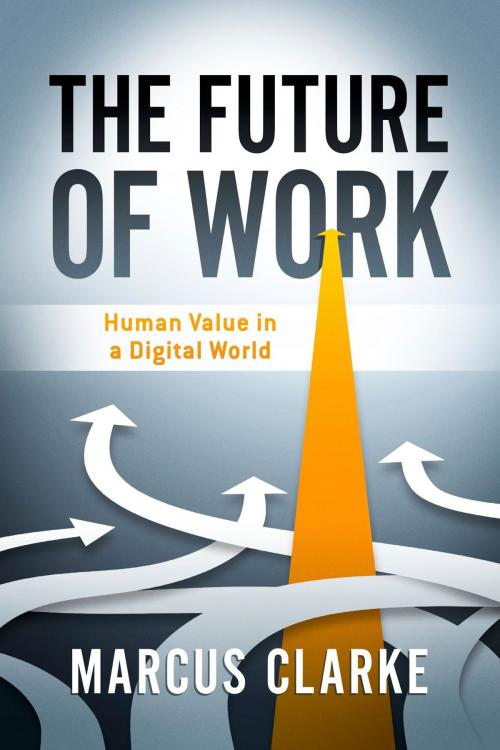The Future of Work
Human Value in a Digital World
Business & Finance, Management & Leadership, Leadership| Author: | Marcus Clarke | ISBN: | 9781483548326 |
| Publisher: | BookBaby | Publication: | February 15, 2015 |
| Imprint: | Language: | English |
| Author: | Marcus Clarke |
| ISBN: | 9781483548326 |
| Publisher: | BookBaby |
| Publication: | February 15, 2015 |
| Imprint: | |
| Language: | English |
The world of work is changing. Seismic shifts in technology, demographics and globalization are fundamentally changing the meaning of work, jobs and careers. Human jobs are increasingly performed by robots, expert systems or software, which are steadily eroding middle class employment in the US. The remaining jobs are now performed by human-machine hybrids as we become ever more dependent upon computers to accelerate our daily work to be competitive. Wave after wave of new technology offers employers more ways to further reduce human labor costs. This is creating a looming socio-economic divide between the tiny minorities those who design and control these systems, and the vast majority whose basic skills are so are plentiful that automation isn't economical. To thrive in this highly dynamic and uncertain future, we need to understand how the very concepts of work, employment, organizations and society are being turned upside-down. Computers now commonly direct humans in fast food restaurants, call centers, factories and hospitals. Even the billions traded daily on US stock exchanges occur without any human intervention; we humans are far too slow. So what is the value of being human in this digital world? Without jobs, what will drive the massive consumer economy if we don¹t have the income to purchase goods? What will be the impact on the economy, our privacy, our children’s education, poverty and even climate change and landfills? Perhaps technology can leapfrog these challenges into a different, extraordinary future. Instead of the bleak, dystopian picture that is so often portrayed, perhaps technology will free us to be more human than we ever imagined.
The world of work is changing. Seismic shifts in technology, demographics and globalization are fundamentally changing the meaning of work, jobs and careers. Human jobs are increasingly performed by robots, expert systems or software, which are steadily eroding middle class employment in the US. The remaining jobs are now performed by human-machine hybrids as we become ever more dependent upon computers to accelerate our daily work to be competitive. Wave after wave of new technology offers employers more ways to further reduce human labor costs. This is creating a looming socio-economic divide between the tiny minorities those who design and control these systems, and the vast majority whose basic skills are so are plentiful that automation isn't economical. To thrive in this highly dynamic and uncertain future, we need to understand how the very concepts of work, employment, organizations and society are being turned upside-down. Computers now commonly direct humans in fast food restaurants, call centers, factories and hospitals. Even the billions traded daily on US stock exchanges occur without any human intervention; we humans are far too slow. So what is the value of being human in this digital world? Without jobs, what will drive the massive consumer economy if we don¹t have the income to purchase goods? What will be the impact on the economy, our privacy, our children’s education, poverty and even climate change and landfills? Perhaps technology can leapfrog these challenges into a different, extraordinary future. Instead of the bleak, dystopian picture that is so often portrayed, perhaps technology will free us to be more human than we ever imagined.















